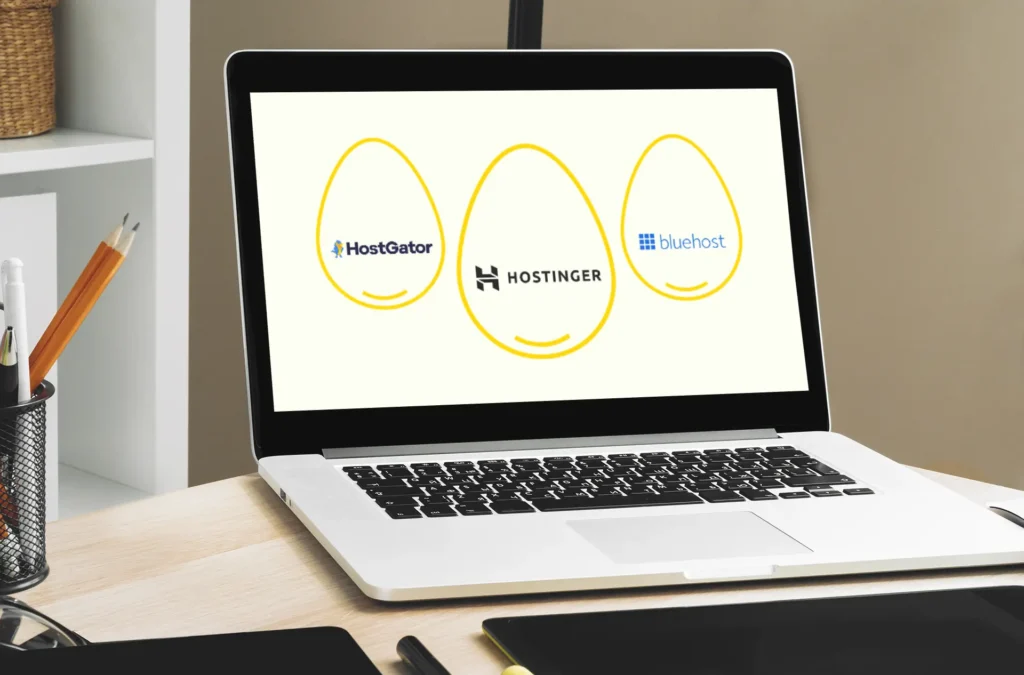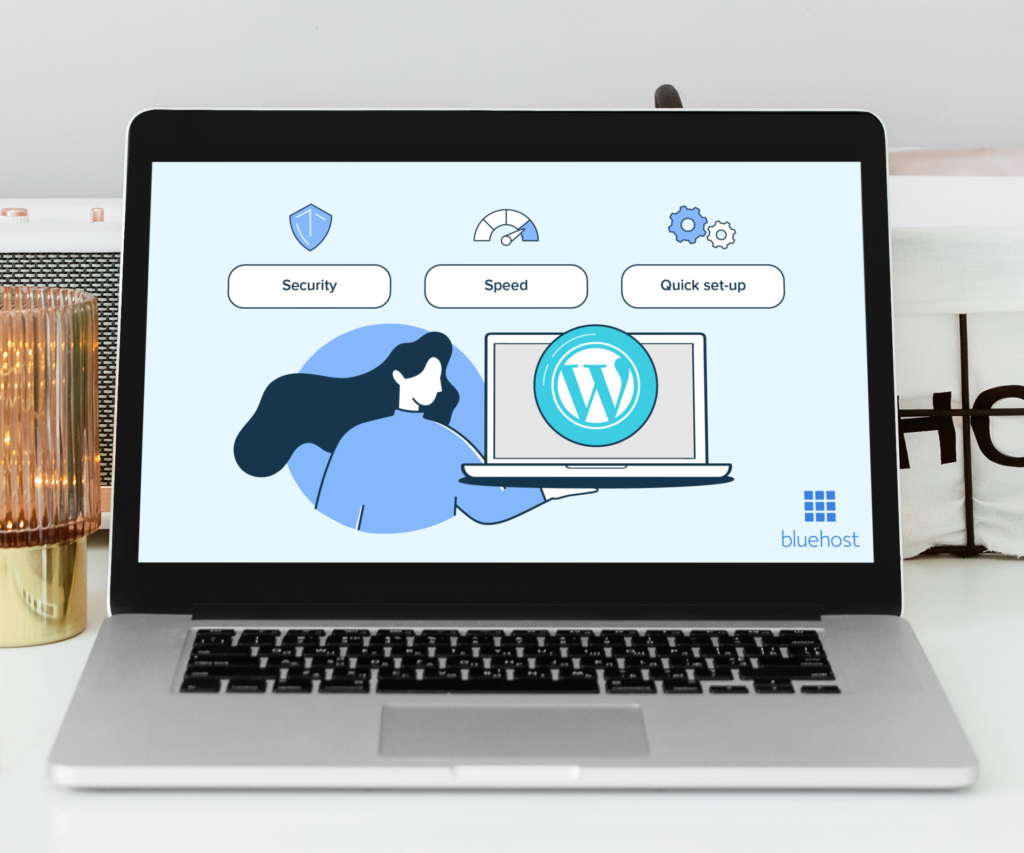Table of Contents
Introduction to Best Budget WordPress Hosting
In the activating agenda landscape, Budget WordPress Hosting has emerged as a cardinal band-aid for new bloggers, baby businesses, and hobbyists. The abstraction revolves about accouterment cost-effective hosting casework after compromising on capital appearance and performance. For abounding who are aloof starting their online journey, affordability is a cogent factor. However, it is appropriately analytical to ensure that this affordability does not appear at the amount of affection and reliability.
Budget-friendly hosting solutions bang a aerial balance, alms acceptable resources, able-bodied aegis measures, and reliable chump support, all aural an economical amount range. These hosting affairs are crafted to baby to the specific needs of individuals and baby enterprises who ability not accept the banking accommodation to advance in exceptional hosting casework yet crave a abiding and able online presence.
The importance of selecting the right hosting cannot be overstated. Poor hosting choices can lead to slow website performance, frequent downtimes, and inadequate security, which can significantly hinder online growth and user satisfaction. To delve deeper into why choosing the right hosting is crucial for your website, consider reading our comprehensive post on Why Choosing the Right Hosting is Critical for Your Website.
In this guide, we will explore various aspects of budget-friendly WordPress hosting. We will discuss the key features to look for, compare popular budget hosting providers, and provide tips on how to make the most of a budget hosting plan. By the end of this guide, you will be equipped with the knowledge to make an informed decision that aligns with your financial constraints while ensuring your website remains functional and secure.
Key Features to Look for in Budget-Friendly Hosting

When searching for budget-friendly WordPress hosting, several key features should be taken into account to ensure that the service meets your needs effectively. One of the primary aspects to consider is uptime reliability. High uptime guarantees that your website remains accessible to visitors almost all the time, minimizing disruptions and potential revenue losses. A hosting provider with an uptime guarantee of 99.9% or higher is generally considered reliable.
Equally important is customer support. Quality customer support is crucial, especially for those who may not be tech-savvy. Ensure that the hosting provider offers 24/7 support through multiple channels such as live chat, email, and phone. Responsive and knowledgeable support can resolve issues quickly, preventing extended downtime and ensuring a smooth user experience.
Scalability is another vital feature. As your website grows, your hosting needs will evolve. Budget-friendly hosting should offer scalable solutions, allowing you to upgrade your resources without significant hassle or cost. This flexibility ensures that your website can accommodate increasing traffic and data without performance degradation.
Security features are indispensable for protecting your website from threats. Look for hosting providers that offer robust security measures such as SSL certificates, regular backups, malware scanning, and firewall protection. These features help safeguard your data and maintain the trust of your visitors.
Lastly, ease of use can significantly enhance your hosting experience. A user-friendly control panel, such as cPanel or a custom interface, simplifies the management of your website and hosting settings. This ease of navigation is particularly beneficial for beginners who may find complex interfaces daunting.
For more detailed information on hosting features, you can refer to reputable sources such as WordPress.org.
Top Budget-Friendly WordPress Hosting Providers

When it comes to finding the best budget-friendly WordPress hosting providers, several companies stand out due to their competitive pricing, robust features, and special offers. Below, we explore some of the top providers, including Bluehost, SiteGround, HostGator, and A2 Hosting, to help you make an informed decision.
Bluehost
Bluehost is a well-known name in the WordPress community, offering affordable hosting plans starting as low as $2.95 per month. What sets Bluehost apart is its strong integration with WordPress, ease of use, and excellent customer support. The basic plan includes a free domain for the first year, free SSL certificate, and 24/7 support, making it an excellent choice for beginners. For more details, check out our in-depth Bluehost review.
SiteGround
SiteGround is another exceptional choice for budget-conscious WordPress users, with plans starting at $3.99 per month. Known for its outstanding customer service and high-performance features, SiteGround offers free daily backups, free SSL certificates, and advanced security measures. The company also boasts an impressive uptime and fast loading speeds, making it a reliable option. Learn more in our comprehensive SiteGround review.
HostGator
HostGator offers some of the most affordable WordPress hosting plans, starting at just $2.75 per month. This provider is known for its generous storage and bandwidth, free website transfer, and a user-friendly control panel. HostGator also offers a 45-day money-back guarantee, providing peace of mind for new users. For a detailed analysis, visit our HostGator review.
A2 Hosting
A2 Hosting is renowned for its speed and reliability, with plans starting at $2.99 per month. The company offers a range of features, including free site migration, automatic backups, and an anytime money-back guarantee. A2 Hosting also stands out for its commitment to eco-friendly practices and its Turbo Boost option, which promises up to 20x faster page loads. For an in-depth look, read our A2 Hosting review.
These top budget-friendly WordPress hosting providers offer a blend of affordability, performance, and customer support, making them excellent choices for both beginners and experienced users.
Comparing Pricing Plans and Value for Money

When searching for budget-friendly WordPress hosting, understanding the pricing structures of various providers is crucial. Entry-level plans are often the most attractive, but it’s essential to consider renewal rates and any hidden fees that may impact the overall cost. Providers such as Bluehost, SiteGround, and HostGator offer competitive initial rates, but their renewal prices can vary significantly.
Bluehost, for instance, has an entry-level plan starting at $2.95 per month, which includes a free domain for the first year and SSL certificate. However, the renewal rate jumps to $7.99 per month. SiteGround starts at $3.99 per month with similar features, but renews at $14.99 per month. HostGator’s introductory rate is $2.75 per month, with a renewal rate of $6.95 per month. It’s evident that while the initial costs are low, the renewal rates can substantially increase the total expenditure over time.
Hidden fees are another factor to consider. Some providers may charge extra for essential features such as backups, security tools, or even customer support. It’s important to read the fine print to ensure that the budget-friendly offer doesn’t come with unexpected additional costs.
In terms of value for money, it’s essential to weigh the features included in each plan. Bluehost offers a robust set of features, including 50GB SSD storage, unmetered bandwidth, and 24/7 support. SiteGround, although pricier upon renewal, boasts superior performance with daily backups, advanced security features, and excellent customer service. HostGator provides unlimited storage and bandwidth, which can be beneficial for growing websites.
To aid in making an informed decision, users can refer to external tools and comparison charts available online. These resources allow for a side-by-side evaluation of hosting plans, highlighting the most cost-effective options based on individual needs. One such useful tool can be found here.
How to Evaluate Hosting Performance and Reliability

Assessing the performance and reliability of a hosting provider is crucial for ensuring your WordPress site runs smoothly and efficiently. Performance and reliability can be gauged through various metrics, such as server speed, uptime guarantees, and customer reviews. These factors collectively determine the quality of service you can expect from your hosting provider.
One of the primary metrics to consider is server speed. A fast server ensures that your website loads quickly, which can significantly enhance the user experience and improve your search engine rankings. Tools like Pingdom, GTmetrix, and Google PageSpeed Insights can be used to measure server response times and overall site speed. These tools provide detailed reports on various aspects of your site’s performance, helping you identify areas that need improvement.
Another critical factor is the uptime guarantee. This metric indicates the percentage of time your website is expected to be operational without interruptions. Most reputable hosting providers offer uptime guarantees of 99.9% or higher. Monitoring services like UptimeRobot and StatusCake can help you track your site’s uptime and alert you to any downtime issues. These tools are invaluable for ensuring your site remains accessible to visitors at all times.
Customer reviews also play a significant role in evaluating hosting performance and reliability. Reviews provide real-world insights into the experiences of other users with a particular hosting provider. Websites like Trustpilot, G2, and HostAdvice offer comprehensive reviews and ratings from actual customers. Reading these reviews can help you identify potential issues and advantages associated with different hosting providers.
In addition to these metrics, it is beneficial to use tools and websites that specifically test hosting performance. For example, LoadImpact and WebPageTest offer detailed analyses of how well a hosting provider can handle traffic spikes and stress tests. These insights are crucial for ensuring your site remains stable under varying conditions.
For a more detailed guide on maintaining optimal performance, you can refer to our article on How to Monitor Your Website’s Performance. This resource provides comprehensive strategies and tools for ongoing performance monitoring.
Customer Support and Service Quality
When selecting a budget-friendly WordPress hosting provider, the quality of customer support and service is paramount. Good customer support can be a distinguishing factor between a smooth, stress-free experience and one filled with frustration. Typically, hosting providers offer various types of support, including live chat, phone, and email. Each method has its merits, and understanding these can aid in making an informed decision that best suits your needs.
Live chat support is often favored for its immediacy. It allows users to get answers in real time, which is particularly useful for urgent issues. Phone support, while potentially less instantaneous than live chat, offers the benefit of a more personal touch and can be essential for complex problems that require detailed explanations. Email support, while typically slower, is useful for non-urgent issues and provides a written record of the communication that can be referenced later.
Response times are a critical aspect of customer support. A hosting provider’s ability to respond quickly and efficiently can significantly impact your website’s uptime and performance. Providers with 24/7 support are often more reliable, ensuring that help is available whenever you need it. Evaluating response times can be done by reaching out to support with a test query and noting how long it takes to receive a satisfactory response.
The quality of help provided is equally important. Effective customer support should not only be accessible but also knowledgeable and capable of resolving issues promptly. To assess this, reading user reviews can provide insights into other customers’ experiences. Websites like Trustpilot offer a wealth of reviews that can help you gauge the reliability and effectiveness of a hosting provider’s support services.
In addition to reviews, consider testing the provider’s support channels directly. Reach out via live chat, phone, or email with specific questions to see how well they handle your inquiries. This firsthand experience can be invaluable in determining whether a hosting provider’s customer support meets your expectations and needs.
Security Features to Consider

When looking for budget-friendly WordPress hosting, it is crucial not to overlook essential security features. Ensuring robust security measures can safeguard your website from potential threats, protecting both your data and your users. Here are some key security aspects you should prioritize:
SSL Certificates: A Secure Sockets Layer (SSL) certificate encrypts the data transmitted between your website and your users, ensuring that sensitive information, such as login credentials and payment details, remains private. Even budget-friendly hosting providers often include free SSL certificates, making it an indispensable feature for any website, big or small.
Regular Backups: Regular backups are vital for the safety of your website’s data. In the event of a security breach or accidental data loss, having recent backups ensures that you can quickly restore your website to its previous state. Look for hosting providers that offer automated daily or weekly backups as part of their service package.
Malware Scanning: Malware can severely compromise your website’s security, leading to data theft, downtime, and loss of user trust. Hosting providers that offer regular malware scanning can detect and remove malicious software before it becomes a significant issue. This feature is especially important for maintaining the integrity and security of your website.
Firewall Protection: A web application firewall (WAF) adds an additional layer of security by filtering and monitoring HTTP traffic between your web application and the internet. It can block malicious traffic and prevent attacks such as SQL injection and cross-site scripting (XSS). Ensure your hosting provider includes firewall protection to safeguard your website from these common threats.
For a more comprehensive understanding of website security, you may refer to our previous blog post on Essential Website Security Tips for Beginners. Even when working within a budget, prioritizing these security features can make a significant difference in protecting your WordPress website.
Making the Final Decision and Getting Started

After thoroughly evaluating your options, making the final decision on the best budget-friendly WordPress hosting provider involves a streamlined approach. First, consolidate the key factors discussed in this guide: reliability, performance, customer support, and essential features such as SSL certificates and backups. Ensure that the provider you choose aligns with your specific needs and expectations.
Once you have selected your budget-friendly WordPress hosting provider, the next step is setting up your WordPress site. Begin by installing WordPress, which is often simplified through one-click installation features provided by most hosts. Follow the on-screen instructions to complete the installation process, ensuring that your domain is correctly linked to your hosting account.
With WordPress installed, focus on enhancing your website’s functionality. Start by installing essential plugins that cater to security, SEO, and performance optimization. Popular plugins include Yoast SEO for search engine optimization, Wordfence for security, and W3 Total Cache for improved site speed. Additionally, consider installing a backup plugin like UpdraftPlus to safeguard your content.
Optimization does not end with plugins; it extends to configuring your site for optimal performance. This includes selecting a lightweight theme, optimizing images for faster load times, and enabling caching mechanisms. These steps ensure that your website runs smoothly and efficiently, providing a better user experience.
For a comprehensive walkthrough of these steps, refer to our WordPress Setup Checklist. This resource provides detailed instructions and additional tips to help you get your site up and running with ease.
In conclusion, selecting the best budget-friendly WordPress hosting provider and setting up your site requires careful consideration and a methodical approach. By following the steps outlined in this guide, you can ensure a smooth transition from selection to implementation, ultimately creating a robust and efficient WordPress website.


